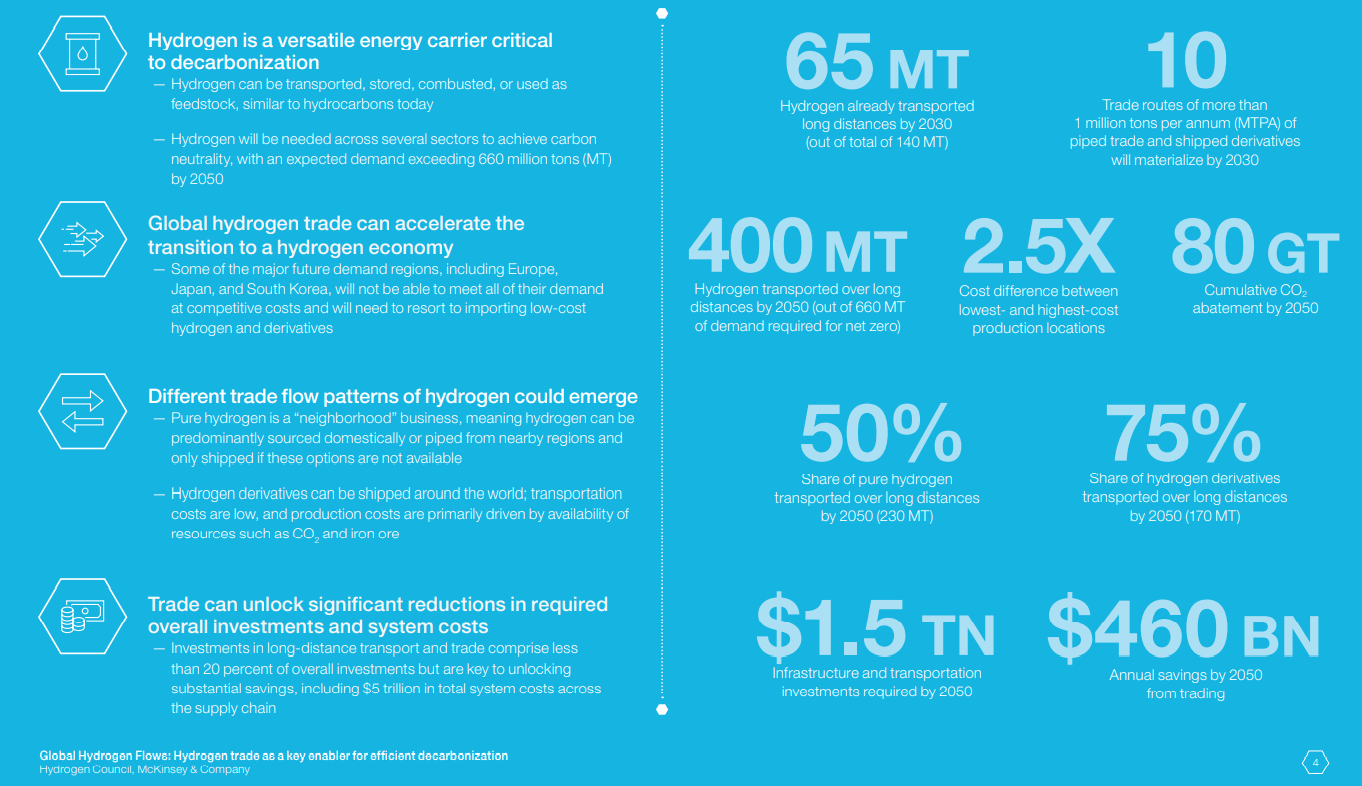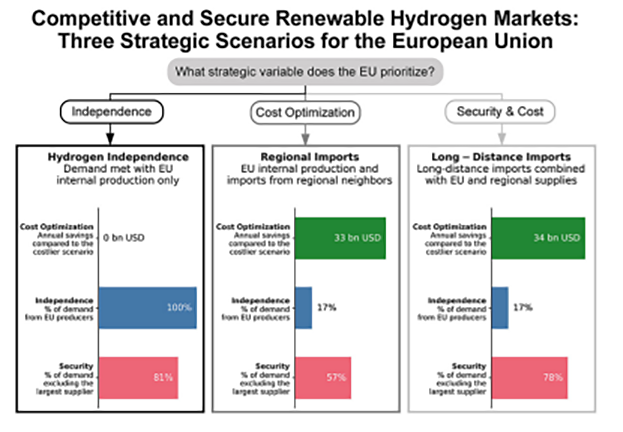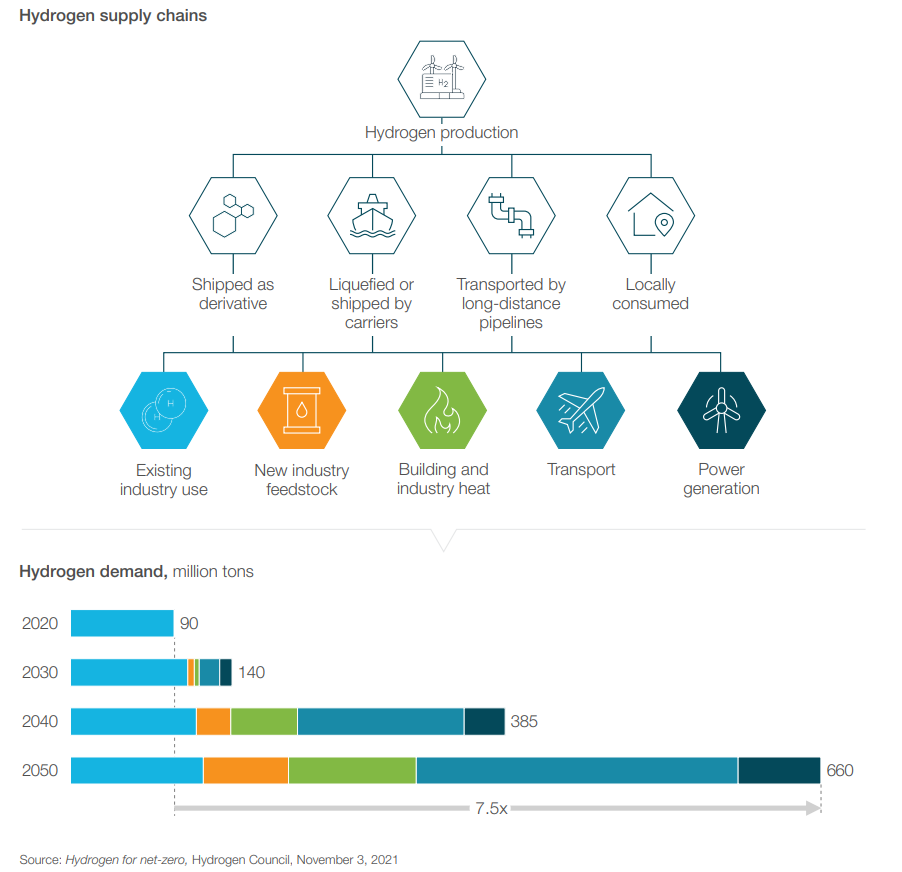Hydrogen global flows, EU market and geopolitical implications
The #hydrogentrade has been the subject of several reports and papers this month. SynerHy highlights two essential documents relevant to H2 professionals:
-
McKinsey’s Global Hydrogen Flow report for the Hydrogen Council. According to the report, hydrogen trade could develop, as well as the steps needed to get there.
- The recently published paper “Competitive and secure renewable hydrogen markets: Three strategic scenarios for the European Union”. International Journal of Hydrogen Energy. Nuñez-Jimenez, A. and De Blasio, N., 2022.
Spain is fortunate to have a reference in the hydrogen research sector in @AlejandroNunez. He is a senior researcher at the Department of Management, Technology and Economics at ETH Zurich and a former postdoctoral fellow at Harvard Kennedy School. He is a prolific author with numerous publications.
Here are the key messages of these two must-read SynerHy documents:
- According to the HC report, global hydrogen trade can accelerate the transition to the hydrogen economy with 400 million tonnes of hydrogen needed for carbon neutrality by 2050 and reduce 80 gigatonnes of carbon dioxide emissions by then.

- The paper “Three strategic scenarios for the EU” shows how renewable hydrogen offers a unique opportunity to accelerate the EU’s transition to a low-carbon economy and analyses three strategic scenarios in which the EU prioritizes energy independence, cost optimisation or energy security using an optimisation model of international hydrogen trade based on production potentials and cost curves in EU countries and potential trading partners.

-
The McKynsei report addresses cost efficiency: 50% of hydrogen (pure hydrogen) is transported by pipeline, while hydrogen derivatives (synthetic fuels, ammonia and sponge iron) are transported by ships, approximately 45%.

- Hydrogen allows energy companies to tap into renewable energy that is extremely competitive but would otherwise be “stranded” in remote locations, allowing renewable energy capacity to be increased and therefore accelerating the energy transition, according to the paper “Three strategic scenarios for the EU”.
- The Global Hydrogen Flow Perspective addresses the midstream challenge of aligning and optimising global supply and demand. It finds that trade can reduce overall system costs.
- The EU could be #hydrogen independent if it builds renewable hydrogen at scale and deploys the necessary infrastructure for an integrated market, but imports minimise overall costs that reproduce past patterns of energy dependence, according to Alejandro.